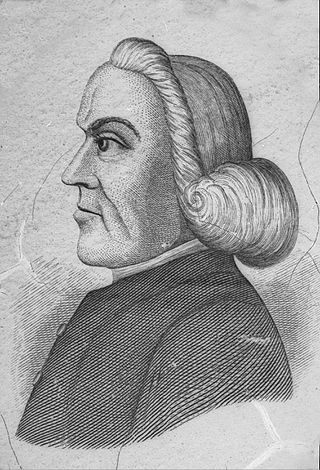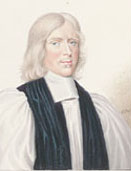Related Research Articles

Andrew Lloyd Webber, Baron Lloyd-Webber, is an English composer and impresario of musical theatre. Several of his musicals have run for more than a decade both in the West End and on Broadway. He has composed 21 musicals, a song cycle, a set of variations, two film scores, and a Latin Requiem Mass.

Howell Harris was a Calvinistic Methodist evangelist. He was one of the main leaders of the Welsh Methodist revival in the 18th century, along with Daniel Rowland and William Williams Pantycelyn.

Sewerby Hall is a Grade I listed Georgian country house set in 50 acres (20 ha) of landscaped gardens in the village of Sewerby, 2 miles (3.2 km) from the seaside town of Bridlington in the East Riding of Yorkshire, England.
This is a list of people who have served as Lord Lieutenant of Flintshire. Since 1802, all Lord Lieutenants have also been Custos Rotulorum of Flintshire. The office was abolished on 31 March 1974, and was replaced by the Lord Lieutenant of Clwyd.
This is an incomplete list of people who served as Lord Lieutenant of Denbighshire in Wales. After 1733, all Lord Lieutenants were also Custos Rotulorum of Denbighshire. The office was abolished on 31 March 1974, being replaced by the Lord Lieutenant of Clwyd.
This is a list of individual who served as Lord Lieutenant of Caernarvonshire. Since 1778, all Lord Lieutenants have also held the position of Custos Rotulorum of Caernarvonshire. The office was abolished on 31 March 1974 and succeeded by the position of Lord Lieutenant of Gwynedd.

William Lloyd was an English divine who served successively as bishop of St Asaph, of Lichfield and Coventry and of Worcester.
Samuel Preston was a jurist, merchant, and mayor of Philadelphia.
Edward Lloyd II was the 11th Royal Governor of Maryland from 1709 to 1714. He attained the rank of Major General of the Eastern Shore militia.

Kington is a village in Worcestershire, England, situated near to Flyford Flavell.
David Lloyd was a Welsh translator and cleric.
Oliver Lloyd was a Welsh Anglican priest and lawyer who became Dean of Hereford Cathedral.

The Admiralty Advocate was one of the Law Officers of the Crown. He represented the Crown in the High Court of Admiralty from 1661 to 1867. He was also known as the Advocate for the Affairs of the Admiralty.

The Judge of the High Court of Admiralty was established in 1483 he was the chief law officer of the High Court of Admiralty. The office holder was supported by various officials and existed until 1875.
John Pugh of Mathafarn, Llanwrin, Montgomeryshire, was a British lawyer and Tory politician who sat in the English and British House of Commons from 1705 to 1727.

Walter Lloyd, of Peterwell, Cardiganshire, was a British lawyer and Whig politician who sat in the House of Commons from 1734 to 1742.
Richard Lloyd was an Anglo-Irish plantation owner and Whig politician who sat in the British House of Commons from 1708 to 1711.
Francis Lloyd was a Welsh Anglican priest.
Hugh Lloyd was a 17th-century English priest.
References
- ↑ National Archives
- ↑ Alumni Oxonienses 1500–1714, Lloyd-Lytton
- ↑ Horn, Joyce M. (1996), Fasti Ecclesiae Anglicanae 1541–1857, vol. 8, pp. 47–49